 The Comfort of Ghosts (Maisie Dobbs, #18) by Jacqueline Winspear
The Comfort of Ghosts (Maisie Dobbs, #18) by Jacqueline Winspear Format: eARC
Source: supplied by publisher via Edelweiss
Formats available: hardcover, paperback, ebook, audiobook
Genres: historical fiction, historical mystery, World War II
Series: Maisie Dobbs #18
Pages: 361
Published by Soho Crime on June 4, 2024
Purchasing Info: Author's Website, Publisher's Website, Amazon, Barnes & Noble, Kobo, Bookshop.org, Better World Books
Goodreads
A milestone in historical mystery fiction as Maisie Dobbs takes her final bow!
Psychologist and investigator Maisie Dobbs unravels a profound mystery from her past in a war-torn nation grappling with its future.
London, 1945: Four adolescent orphans with a dark wartime history are squatting in a vacant Belgravia mansion—the owners having fled London under heavy Luftwaffe bombing. Soon after a demobilized British soldier, ill and reeling from his experiences overseas, takes shelter with the group, Maisie Dobbs visits the mansion on behalf of the owners.
Maisie is deeply puzzled by the children's reticence. Their stories are evasive and, more mysteriously, they appear to possess self-defense skills one might expect of trained adults in wartime. Her quest to bring comfort and the promise of a future to the youngsters and to the ailing soldier brings to light a decades-old mystery concerning Maisie’s first husband, James Compton, who was killed while piloting an experimental aircraft. As Maisie picks apart the threads of her dead husband’s life, she is forced to examine her own painful past and question beliefs she has always accepted as true.
The award-winning Maisie Dobbs series has garnered hundreds of thousands of followers around the world, readers who are drawn to a woman who is of her time, yet familiar in ours—and who inspires with her resilience and capacity for endurance at the worst of times. This final assignment of her own choosing not only opens a new future for Maisie Dobbs and her family, but serves as a fascinating portrayal of the challenges facing the people of Britain at the close of the Second World War.
Over seventeen previous books in the Maisie Dobbs series, hundreds of thousands of readers worldwide have fallen in love with this fearless, compassionate woman—this final adventure not only ties up all Maisie’s loose ends, but also serves as a fascinating portrayal of life in Great Britain after the close of the second World War.
My Review:
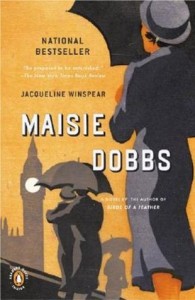 As seems fitting for this final book in the Maisie Dobbs series, A Comfort of Ghosts begins with an ending. One of the towering – literally as he was quite tall – secondary figures in this long-running series, Lord Julian Compton, originally Maisie’s employer, once-upon-a-time her father-in-law, later and last her friend, has died, Leaving Maisie to mourn, to comfort his widow, to be the executor of his estate and to clean up his last act in the late war.
As seems fitting for this final book in the Maisie Dobbs series, A Comfort of Ghosts begins with an ending. One of the towering – literally as he was quite tall – secondary figures in this long-running series, Lord Julian Compton, originally Maisie’s employer, once-upon-a-time her father-in-law, later and last her friend, has died, Leaving Maisie to mourn, to comfort his widow, to be the executor of his estate and to clean up his last act in the late war.
Sending a group of young squatters to her empty house in London, to protect some of Britain’s most hidden and secretive wartime operatives from a false charge of murder. They are a loose end, and entirely too many ‘boffins’ in the war offices have become so accustomed to death being the only tool in their toolbox to take care of such loose ends that they are willing to send four adolescents to the hangman for a crime that wasn’t really a crime that they had the misfortune to witness.
This final story of Maisie’s adventures shows her doing what she has always done best – discovering a problem and getting to the bottom of a situation that someone doesn’t want to be found while protecting as many innocents – and even some of the guilty – along the way.
That, in the middle of this investigation she has the opportunity to finally lay to rest the ghosts of her own past as well as bring her dearest friend back from the brink of disaster and help not one but two dear and deeply scarred veterans out of their very own pits of despair while searching for yet one more complicated truth hidden behind a scrim of convenient lies makes The Comfort of Ghosts, and the solace that Maisie has finally learned to take from her own, a perfect ending to the series.
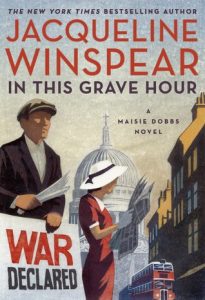 Escape Rating A-: This story closes all the circles that were opened back in the very first book in this series, the titular Maisie Dobbs, finds all the dangling threads that have been left hanging through the course of EIGHTEEN BOOKS, and ties each and every one of them off. So it’s a book about endings.
Escape Rating A-: This story closes all the circles that were opened back in the very first book in this series, the titular Maisie Dobbs, finds all the dangling threads that have been left hanging through the course of EIGHTEEN BOOKS, and ties each and every one of them off. So it’s a book about endings.
At the same time, because of its setting, it’s also a book about beginnings. The series began in the years just before the opening of the ‘Great War’, when young Maisie became an under-housemaid in the household of Lord Compton at the age of thirteen. Maisie’s midnight raids of the great house’s great library were discovered by the mistress of the house, Lady Rowan Compton, and Maisie’s life took a different direction than it otherwise might, leading to all of the marvelous if sometimes fraught adventures and heartbreaks of the series.
But this story takes place in 1945. The second World War has just ended, the recovery and reconstruction has barely begun. Britain is no longer the seat of empire, and the U.S. – and Russia – have taken center stage as a new thing – superpowers.
Maisie and her generation of friends and frenemies are middle aged or older, retiring, returning to home and hearth, or lying dead on a battlefield from one war or the other. This last story, this reckoning of all her accounts, is her swansong.
Which is a hint and a half not to start the series here. It’s not necessary to real all of the previous 17 books to get into this one – I have a few I never got around to but probably will eventually – but this story has so much more resonance if you’ve read at least some and have gotten to know Maisie’s circle of friends and colleagues and contacts and the myriad ways that their lives have become interconnected over the decades.
 For those, like this reader, who have gotten to know Maisie over the years and books, this story is a bittersweet delight. It also feels right that Maisie leave the stage at this historical juncture, as the world she knew is not the world that is to come – as we know and as hints are shown in the story.
For those, like this reader, who have gotten to know Maisie over the years and books, this story is a bittersweet delight. It also feels right that Maisie leave the stage at this historical juncture, as the world she knew is not the world that is to come – as we know and as hints are shown in the story.
But, in that desire to get every thread tied off with a neat bow and foreshadow the changes in the world as it will be, it may have lingered just a bit too long and found a way to tie that last bow just a bit too coincidentally. Your reading mileage may vary.
Still and absolutely all, a marvelous and utterly fitting ending to a captivating series, leaving this reader with both that smile because it happened and a tear or two because it ended.

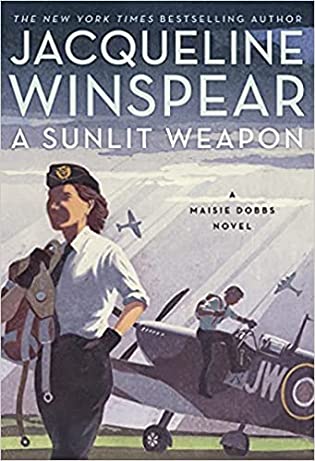 A Sunlit Weapon (Maisie Dobbs #17) by
A Sunlit Weapon (Maisie Dobbs #17) by 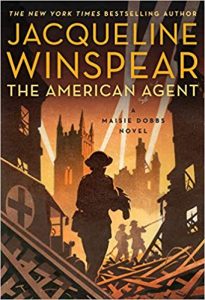 Escape Rating A-: We’ve followed Maisie from her childhood apprenticeship with Maurice Blanche through her nursing service in WW1, through her grief at the loss of her fiancé, her eventual wedding and subsequent tragic widowhood, her recovery and now her second marriage to the American Mark Scott who she met in a previous book in this series,
Escape Rating A-: We’ve followed Maisie from her childhood apprenticeship with Maurice Blanche through her nursing service in WW1, through her grief at the loss of her fiancé, her eventual wedding and subsequent tragic widowhood, her recovery and now her second marriage to the American Mark Scott who she met in a previous book in this series, 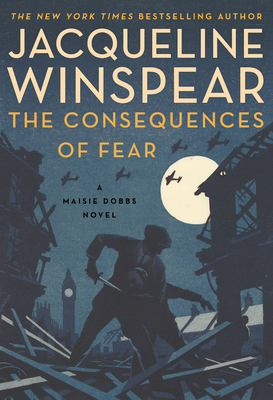 The Consequences of Fear (Maisie Dobbs #16) by
The Consequences of Fear (Maisie Dobbs #16) by 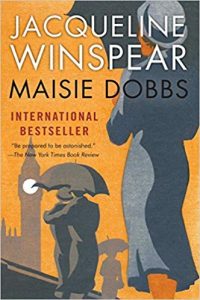 In London, in September of 1941, fear was a constant companion. Every person old enough to be aware, including any children past toddlerhood, has to have felt at least some level of fear every waking minute. Fear of bombs, fear of losing someone dear to them – likely because of a bomb, fear of being made homeless and losing everything they owned – due to a bomb.
In London, in September of 1941, fear was a constant companion. Every person old enough to be aware, including any children past toddlerhood, has to have felt at least some level of fear every waking minute. Fear of bombs, fear of losing someone dear to them – likely because of a bomb, fear of being made homeless and losing everything they owned – due to a bomb.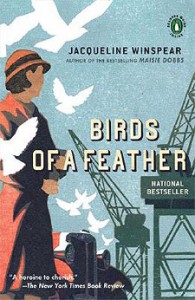 Escape Rating A: This is
Escape Rating A: This is 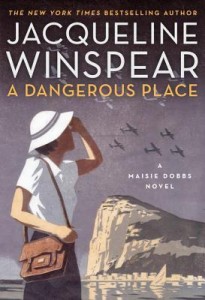 I’ve followed Maisie’s adventures from her very first story, fittingly named after this singular character. This is a series that follows the history of both its character and the world she inhabits, and sincerely rewards readers who get involved at the very beginning. This is not a series to pick up in the middle, especially as the last few books in the series, from
I’ve followed Maisie’s adventures from her very first story, fittingly named after this singular character. This is a series that follows the history of both its character and the world she inhabits, and sincerely rewards readers who get involved at the very beginning. This is not a series to pick up in the middle, especially as the last few books in the series, from 
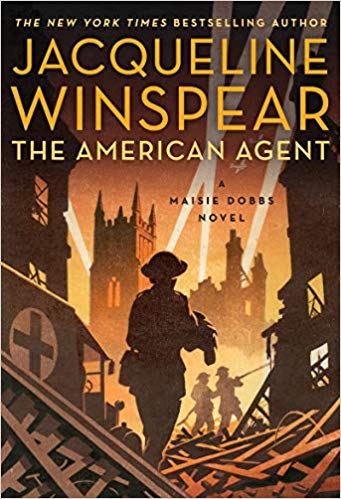 The American Agent (Maisie Dobbs, #15) by
The American Agent (Maisie Dobbs, #15) by 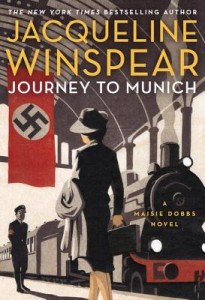 Just as Cath gets in – she’s out. She’s found murdered in her rented rooms, and both Scotland Yard and the American Embassy call on Maisie to find out who killed her. It might just be a love affair gone wrong. It might have something to do with her reporting. There’s also a chance that her powerful family back in America decided that Cath’s sympathetic reports of the plucky and heroic English response to Hitler’s Blitz might be too embarrassing for their Hitler-sympathizing friends back home.
Just as Cath gets in – she’s out. She’s found murdered in her rented rooms, and both Scotland Yard and the American Embassy call on Maisie to find out who killed her. It might just be a love affair gone wrong. It might have something to do with her reporting. There’s also a chance that her powerful family back in America decided that Cath’s sympathetic reports of the plucky and heroic English response to Hitler’s Blitz might be too embarrassing for their Hitler-sympathizing friends back home.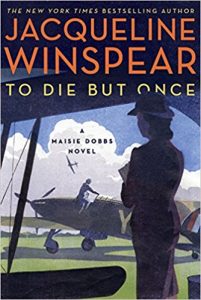 However, there are plenty of people who have taken that belief that war is terrible, but either believe that Hitler is unstoppable or don’t care who dies as long as their profits continue. And some who agree with his many and terrible hatreds and prejudices. (If that sounds familiar, it bloody well should as things stand today!)
However, there are plenty of people who have taken that belief that war is terrible, but either believe that Hitler is unstoppable or don’t care who dies as long as their profits continue. And some who agree with his many and terrible hatreds and prejudices. (If that sounds familiar, it bloody well should as things stand today!)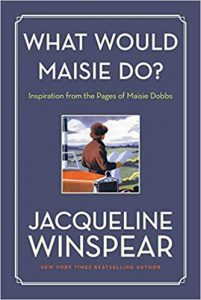 But Maisie never presumes, never presupposed and never lets herself get dead set on any hypothesis. She follows the clues where they lead her. No matter how much she has to dig, and how many secrets she uncovers along the way.
But Maisie never presumes, never presupposed and never lets herself get dead set on any hypothesis. She follows the clues where they lead her. No matter how much she has to dig, and how many secrets she uncovers along the way.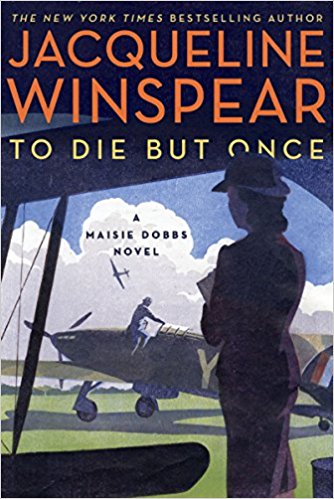 To Die but Once (Maisie Dobbs #14) by
To Die but Once (Maisie Dobbs #14) by 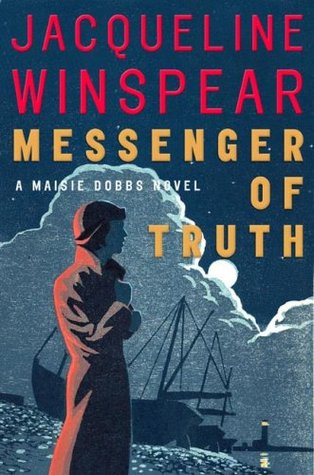 Messenger of Truth (Maisie Dobbs, #4) by
Messenger of Truth (Maisie Dobbs, #4) by 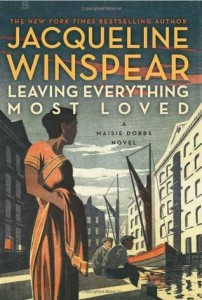 I always look forward to this tour, so I decided to do my own “Month of Maisie” this year. Hence today’s review of Messenger of Truth. Eventually I’ll catch up to myself, as I started reading with
I always look forward to this tour, so I decided to do my own “Month of Maisie” this year. Hence today’s review of Messenger of Truth. Eventually I’ll catch up to myself, as I started reading with 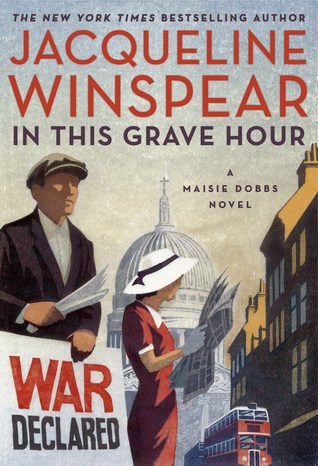 In This Grave Hour (Maisie Dobbs, #13) by
In This Grave Hour (Maisie Dobbs, #13) by 
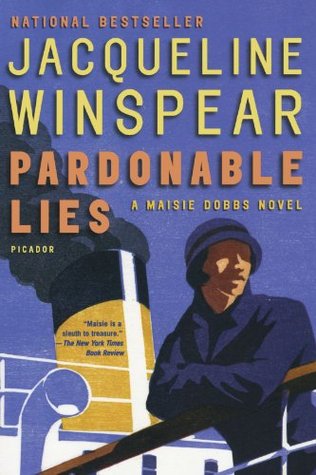 Pardonable Lies (Maisie Dobbs, #3) by
Pardonable Lies (Maisie Dobbs, #3) by 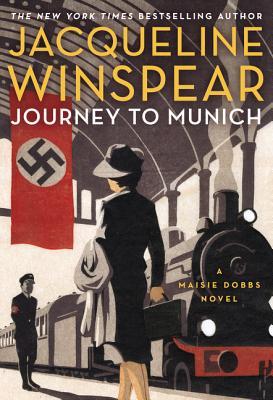 Journey to Munich (Maisie Dobbs, #12) by
Journey to Munich (Maisie Dobbs, #12) by 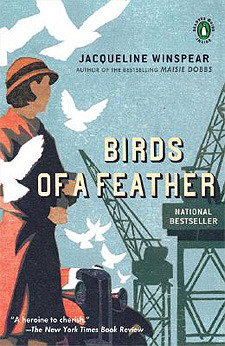 Birds of a Feather (Maisie Dobbs #2) by
Birds of a Feather (Maisie Dobbs #2) by